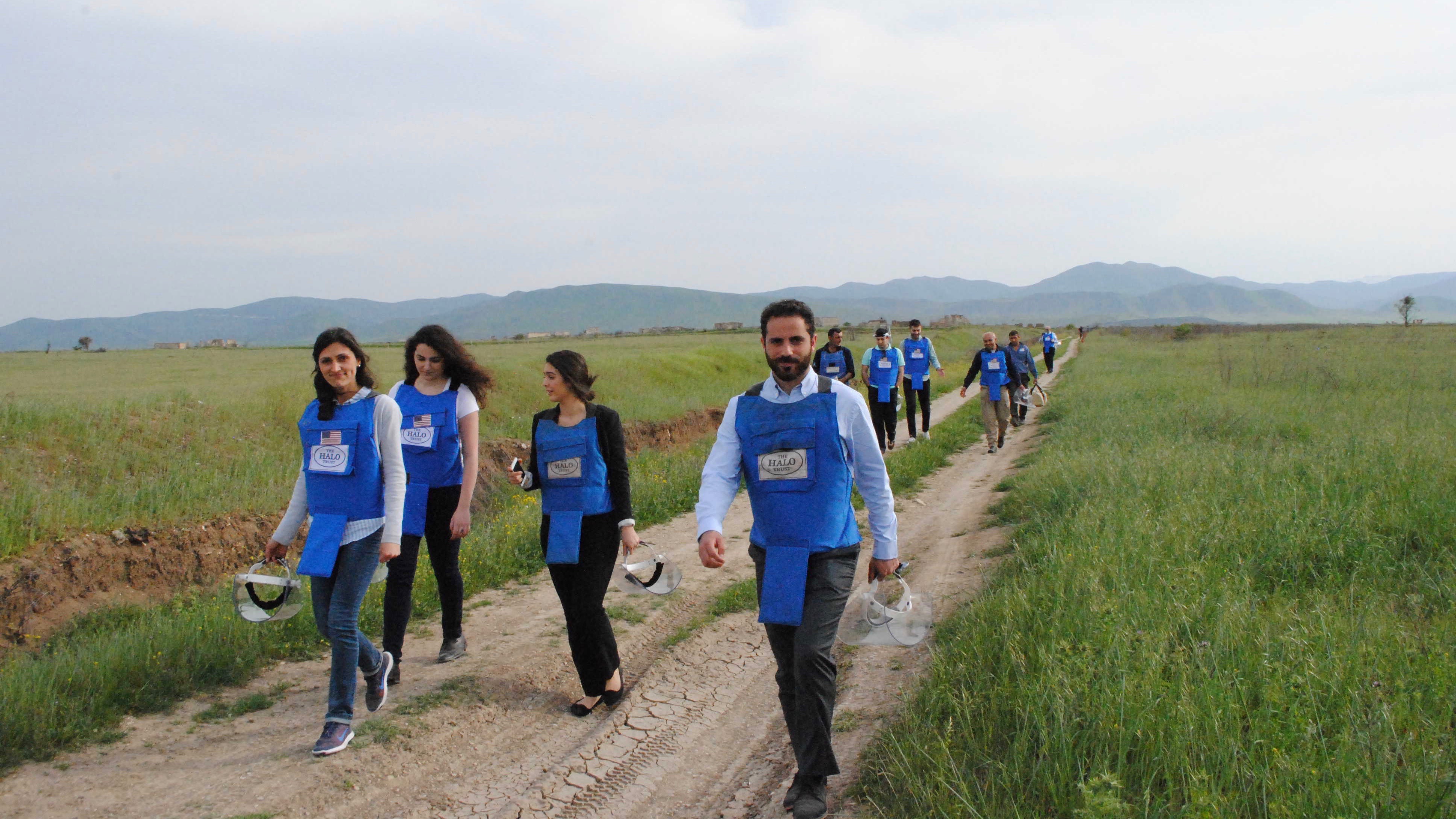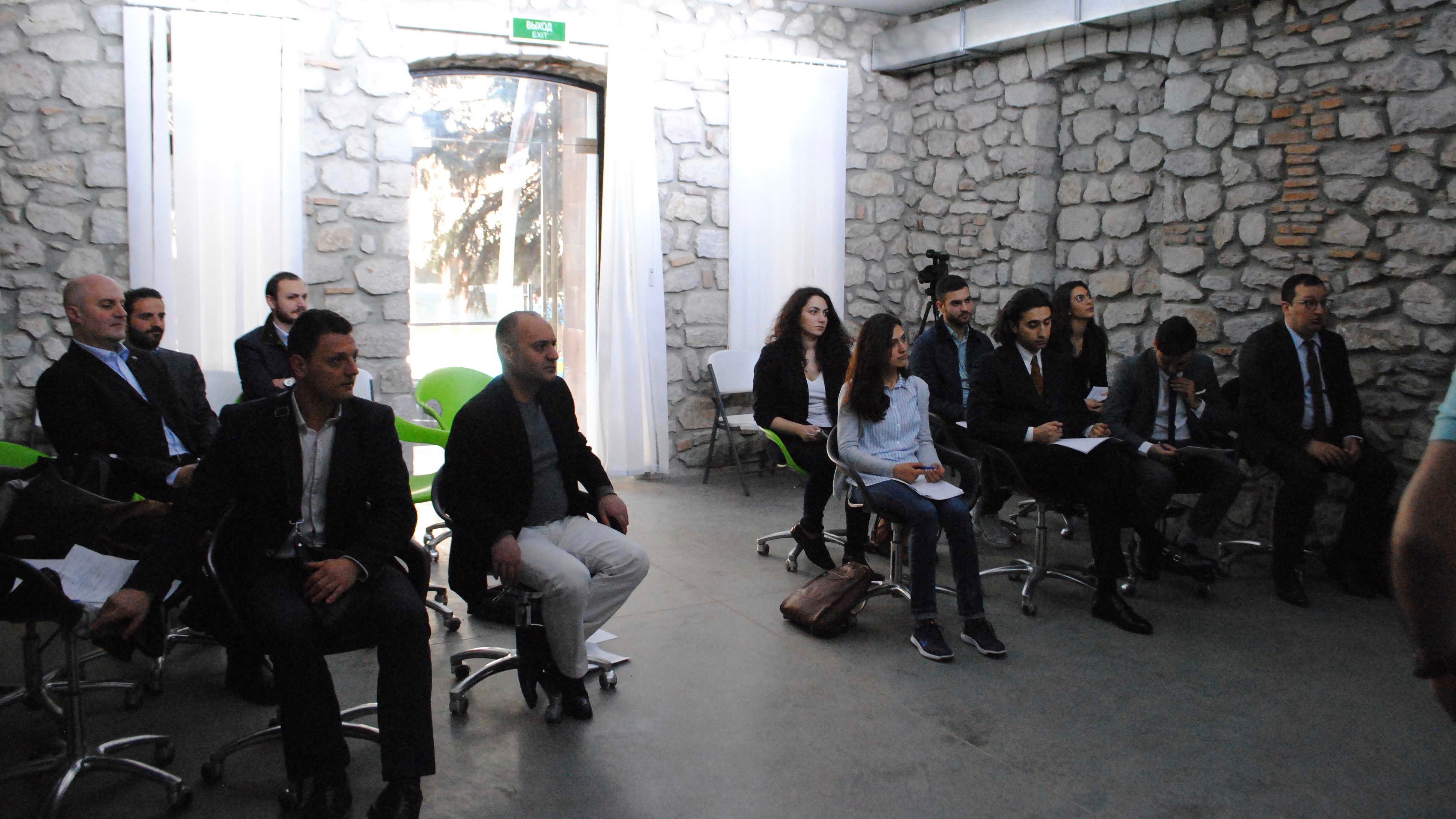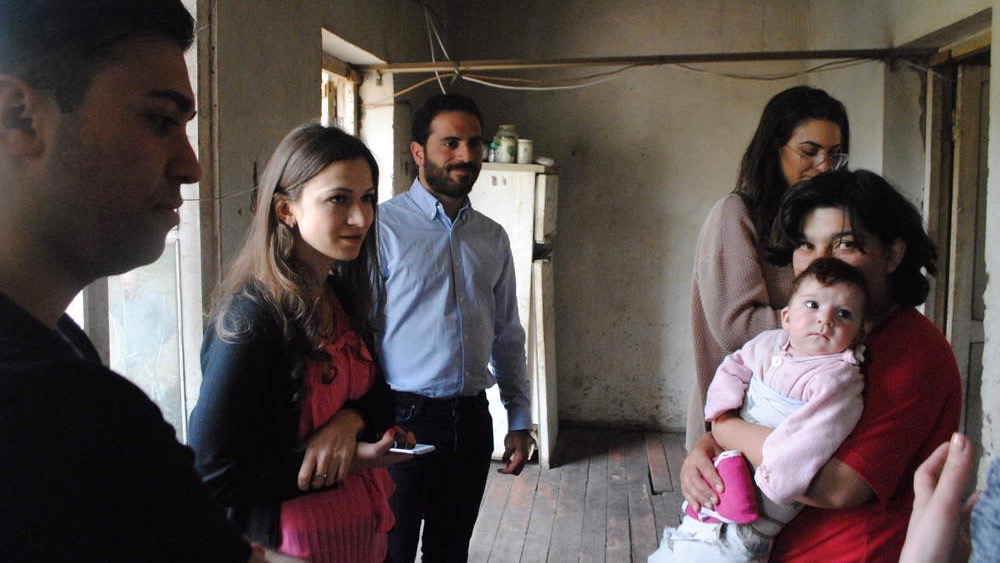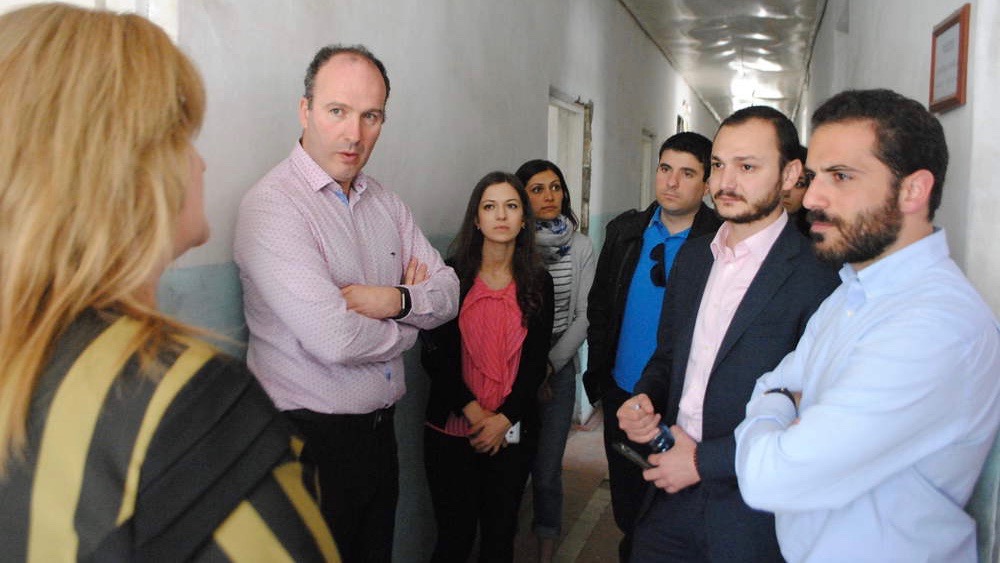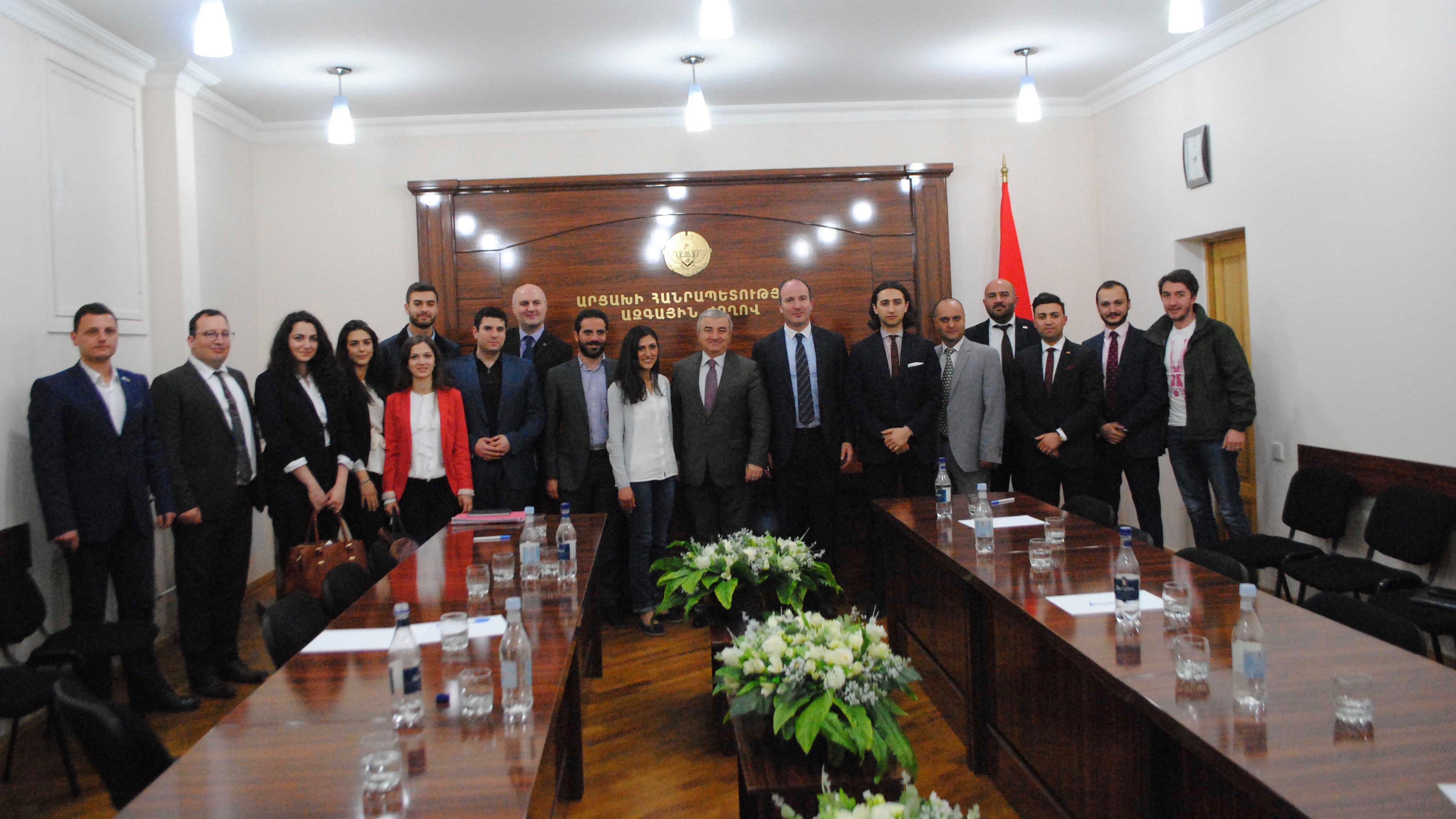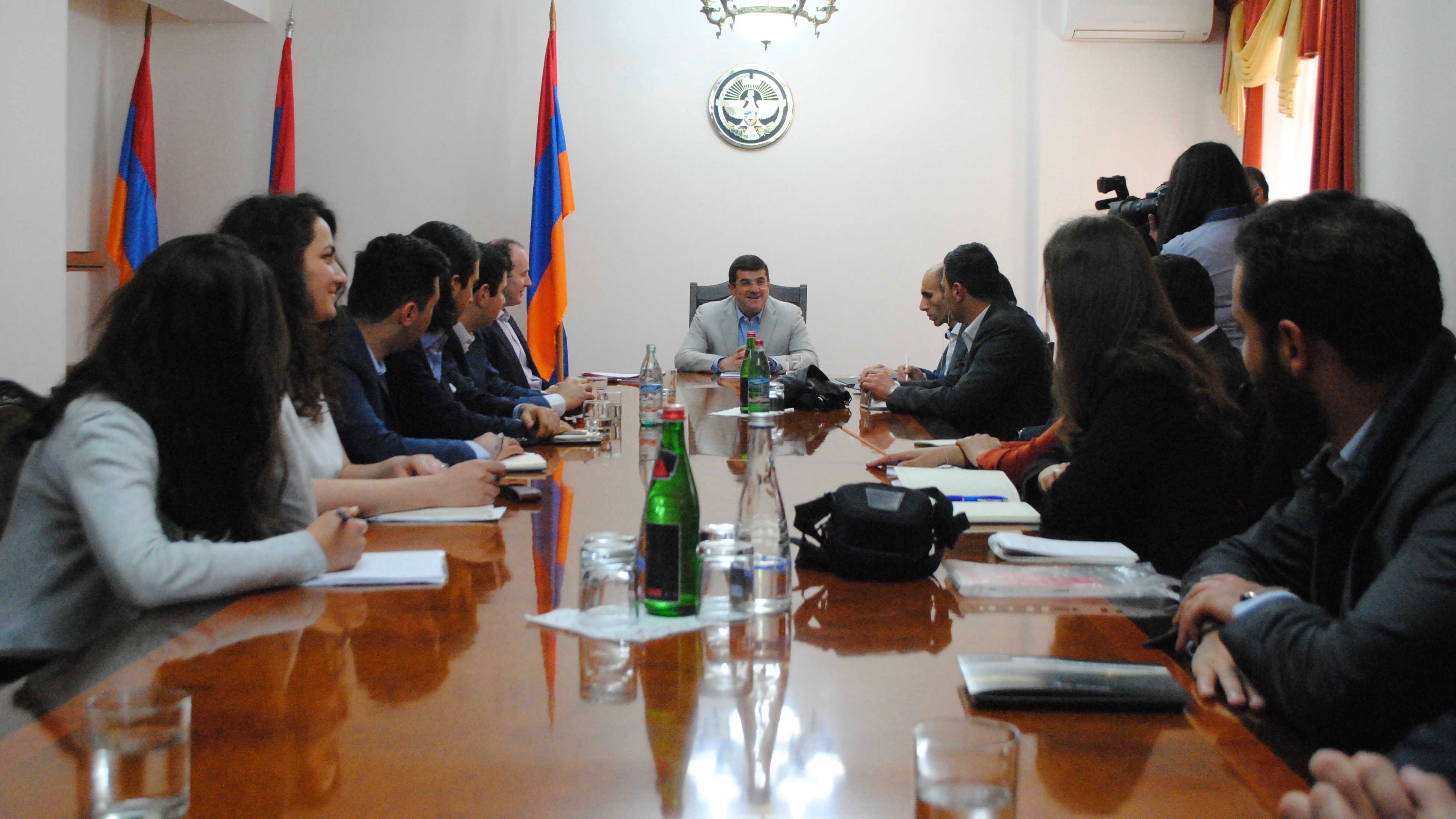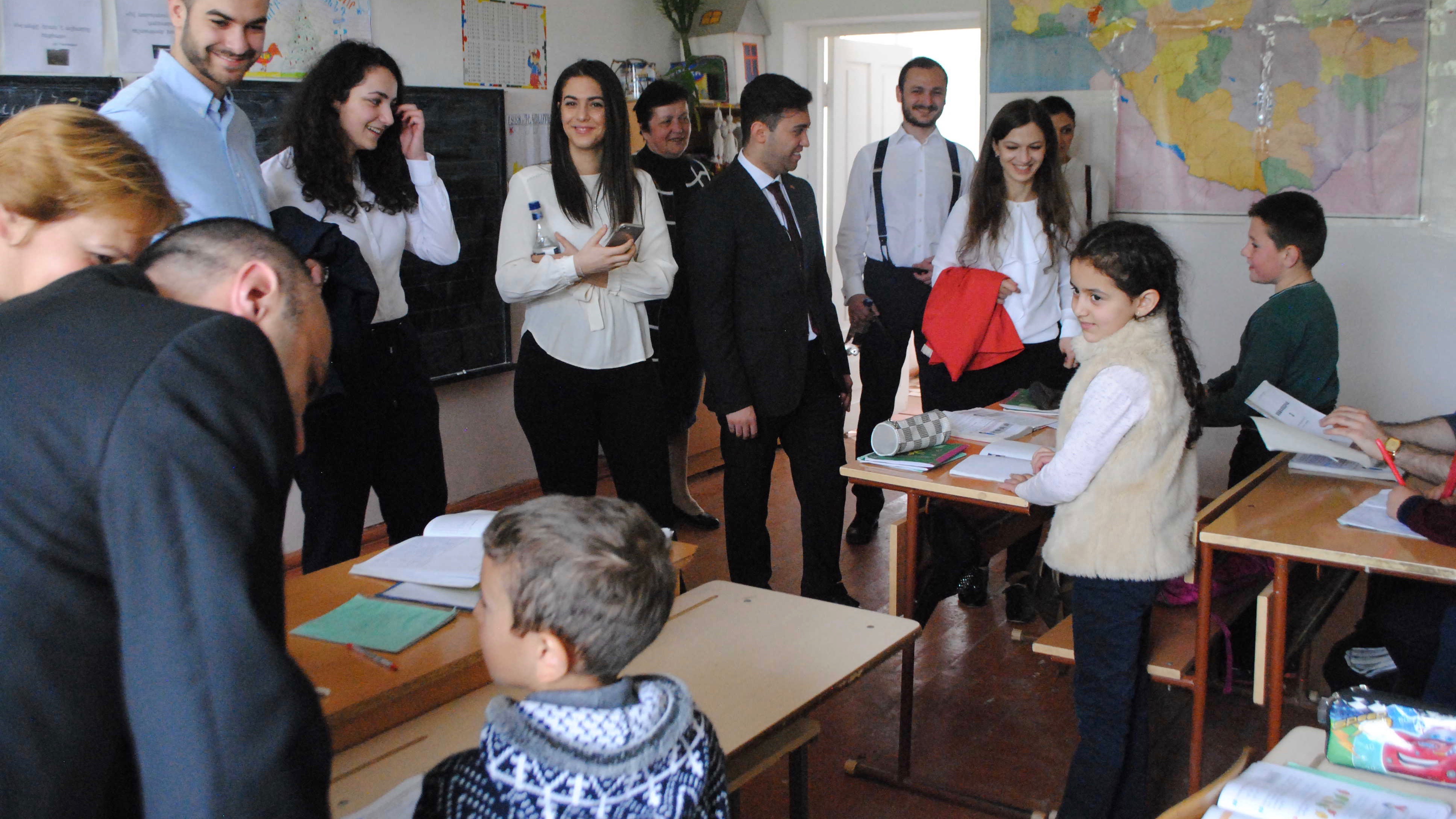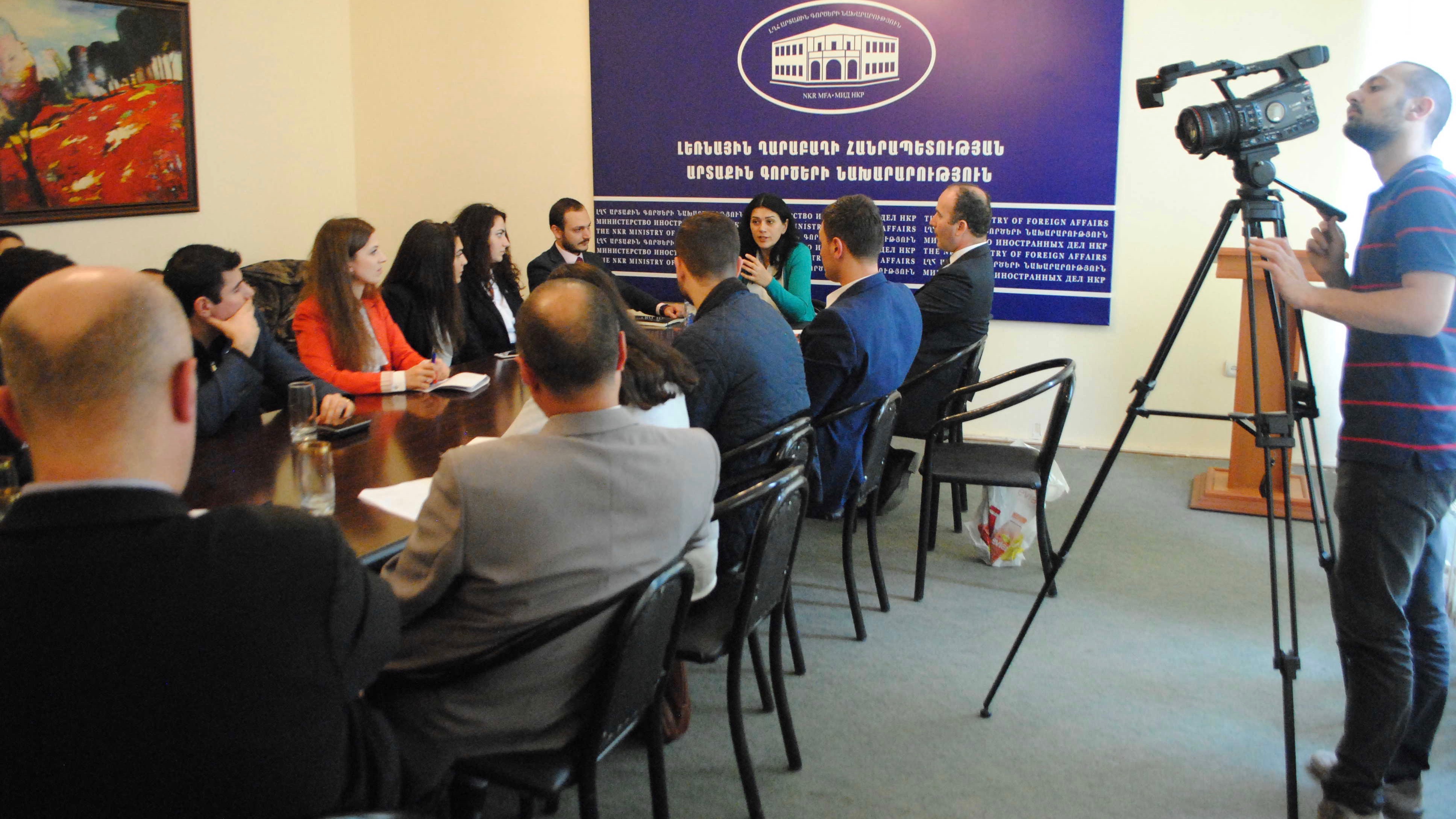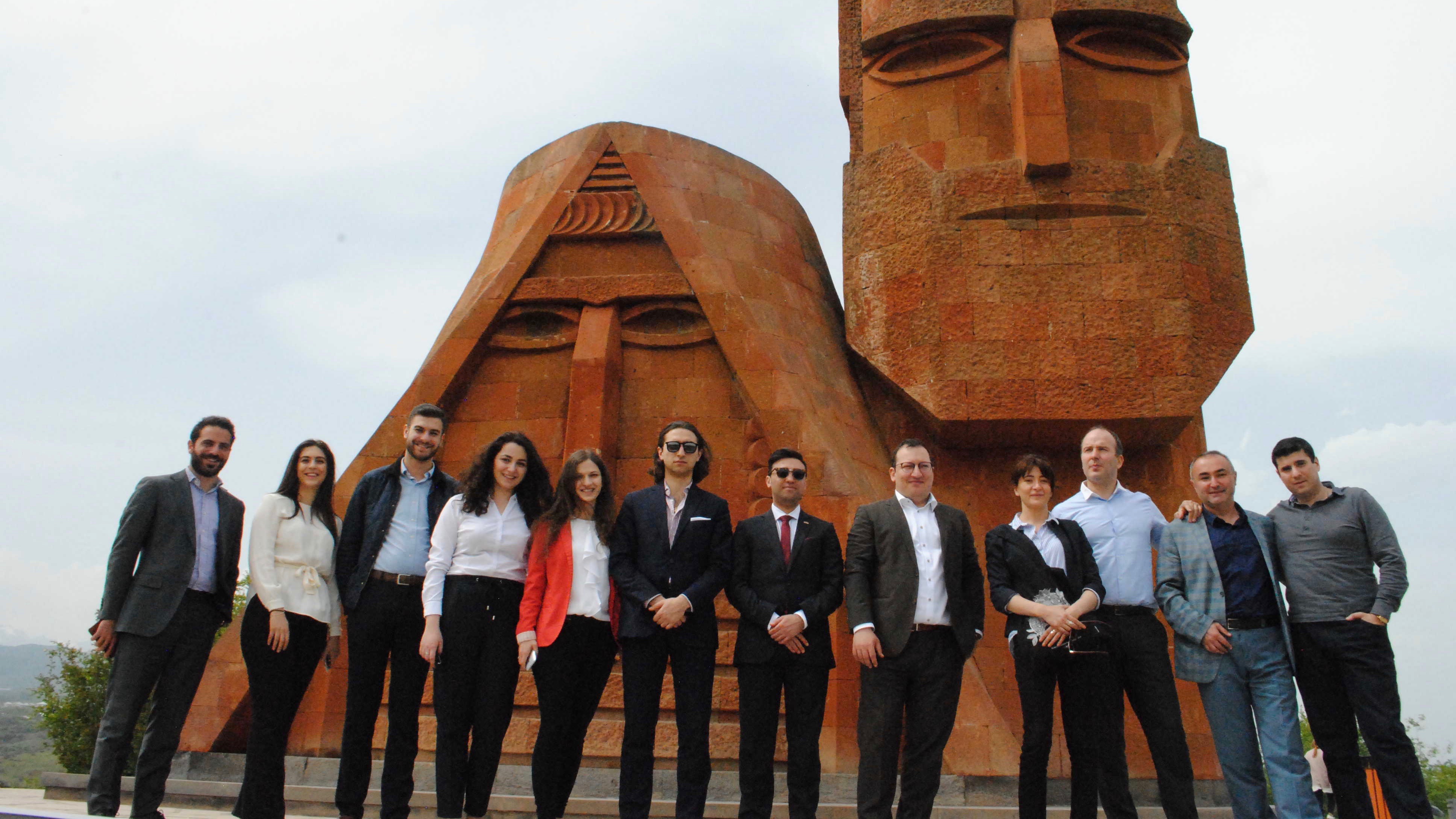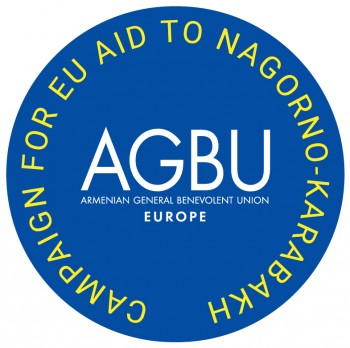12 May 2017
Between April 21 and 24, 15 young activists from 10 different European countries took part in a seminar in Stepanakert, Nagorno-Karabakh (NK, also referred to in Armenian as Artsakh) as part of AGBU Europe’s campaign to promote European engagement in the territory. The group included campaign coordinators from 9 countries, namely the United Kingdom, Spain, Belgium, France, the Netherlands, Germany, Sweden, Poland and Bulgaria.
The programme of the seminar included meetings with the leadership of Artsakh and with the civil society, field visits and internal meetings aimed at exchanging experience and planning ahead. The seminar was hosted by the Tumo Centre of Stepanakert, an educational centre dedicated to creative technologies.
Meetings were held with Arayk Hautunyan, Prime Minister, Armine Alexanian, Deputy Foreign Minister, Ashot Gulyan and David Melkumyan, respectively President of the Parliament and President of the parliamentary committee in charge of international relations, Ruben Melikyan, Ombudsman and Artak Beglaryan, responsible for public relations at the Prime Minister’s office.
These meetings provided valuable opportunities for the public officials to inform campaign coordinators on the daily challenges confronting its government and society. They also provided coordinators with an opportunity to discuss with the government the campaign itself, but also the form which European involvement in Nagorno-Karabakh might take when it materializes. The group also met with NGO leaders dealing with projects for the more vulnerable members of Nagorno-Karabakh society, in a state where public resources are particularly thinly spread.
Field visits included one location where the international NGO “the Halo Trust” is currently working to remove landmines in order to make the land safe for farming. The group also visited several villages, including Kachen and Nor Erkesh, to meet the local population and learn about their lives and endeavours. The group also visited army barracks where they met with young conscripts who took turns to man the frontline. And they found the time to visit some of Artsakh’s architectural jewels, namely the monastery of Gandsasar and the church of Dadivank.
The seminar provided a rare opportunity for close contact with the reality of NK. Campaign coordinators made several valuable contacts there and in their feedback, all underlined the determination and positive mindset with which the people they met are building the society and the state of Nagorno-Karabakh against considerable odds. They returned to their respective countries with updated, coordinated plans of action to advance the objective of their campaign: to promote a European presence in Nagorno-Karabakh.
The campaign for EU Aid in Artsakh aims to prevail upon the European institutions as well as other European organizations to engage with the population of Nagorno-Karabakh. This non-recognized republic is currently the only territory in Europe where no EU official is allowed to go and where the EU provides no assistance whatsoever. For more information on the campaign, please visit:
http://agbueurope.org/campaign-for-eu-aid-to-karabakh/
